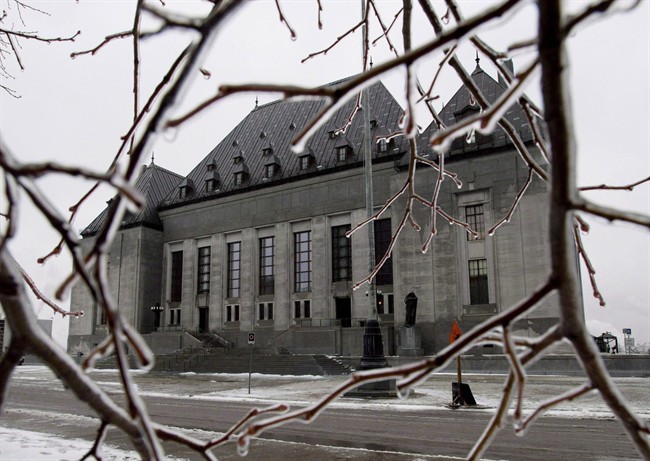OTTAWA — Canada’s top court is expected to release its judgement Friday in a high-profile case confronting the country’s long-standing ban on seeking help to end one’s own life.

The Supreme Court of Canada convened in October to discuss assisted suicicde for the first time since 1993, when it deniedSue Rodriguez’s right to die. Rodriguez suffered from Lou Gehrig’s disease, or ALS, and argued she owned her body and life, and should therefore be allowed to seek medical assistance in ending her life without the physician breaking the law.
READ MORE: Global’s 16×9 goes in-depth with “Life, death and the law”
The case now facing the Supreme Court landed on the docket after the B.C. Civil Liberties Association appealed the provincial supreme court’s 2012 decision to uphold Canada’s prohibition on assisted suicide. Mirroring the 1993 hearing, B.C. resident Gloria Taylor, also suffering from Lou Gehrig’s disease, sought the right to end her life in 2011, two years after being diagnosed with ALS.
READ MORE: Supreme Court of Canada confronts right-to-die question
Although the B.C. Supreme Court ruled the laws on the books prevented Taylor from controlling her own death, it granted her an exemption.
She passed away in 2012 when an infection from a perforated colon spread quickly through her body.
READ MORE: Majority of Canadians support assisted dying, poll suggests
Canadian courts have hinged their decisions regarding assisted suicide on two sections of the Charter of Rights — one that lays out the right to life, liberty and security of the person, and a second that grants equality rights. Opponents to assisted suicide say those sections of the Charter are violated if vulnerable people, such as very old or infirm people with severe disabilities for example, are pressured into having doctors help them die.
They B.C. Civil Liberties Association is fighting to grant Canadians who are terminally ill, but mentally competent, the right to seek medical help hastening their own deaths.
- Life in the forest: How Stanley Park’s longest resident survived a changing landscape
- ‘They knew’: Victims of sexual abuse by Ontario youth leader sue Anglican Church
- Carbon rebate labelling in bank deposits fuelling confusion, minister says
- Buzz kill? Gen Z less interested in coffee than older Canadians, survey shows



Comments